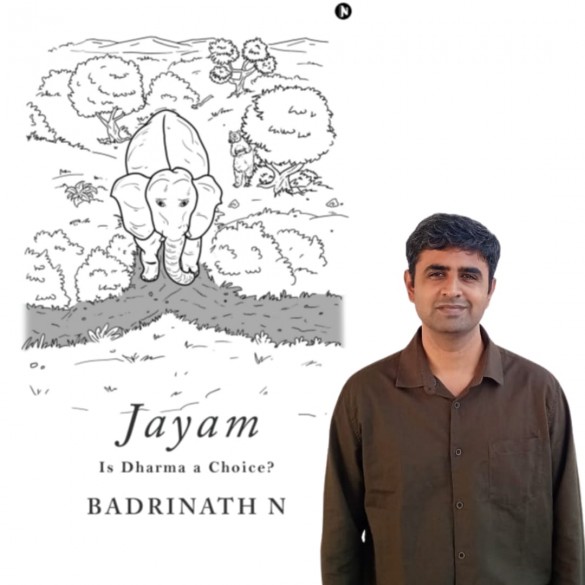
Moral conflicts are an integral part of the human experience. They arise when there is a clash between personal values and ethical principles, and they often require us to make difficult choices. In his upcoming book "Jayam," Badri draws on the ancient Indian epics of the Mahabharata and Ramayana to explore the complexities of moral conflicts. By weaving together stories from these epics with contemporary examples, Badri provides valuable insights into how we can navigate our own moral dilemmas in our personal and professional lives.
The Mahabharata, a vast epic comprising over 100,000 verses, tells the story of a dynastic struggle between two groups of cousins, the Kauravas and the Pandavas. The story is not merely a battle between good and evil but a complex web of familial, political, and moral tensions. The characters are multidimensional, and each has their own strengths and flaws, making the choices they face all the more difficult.
One of the most prominent moral conflicts in the Mahabharata is that of Arjuna, one of the Pandava princes. Before the start of the war, Arjuna is overcome by doubt and despair. He questions the morality of fighting his cousins and teachers, arguing that victory in battle will come at a great cost. In the famous Bhagavad Gita, Krishna, Arjuna's charioteer, provides guidance, explaining the principles of karma and dharma. Krishna reminds Arjuna of his dharmic duty as a warrior and explains that he must fight for the greater good, even if it means dealing with difficult choices.
Similarly, the Ramayana is another ancient Indian epic that explores moral dilemmas. It tells the story of Lord Rama, an incarnation of the god Vishnu, and his quest to rescue his wife Sita from Ravana. The story is often seen as a metaphor for the struggle between good and evil, but it also delves into themes of duty, loyalty, and sacrifice.
Both the Mahabharata and the Ramayana provide profound insights into human nature and the complexities of moral decision-making. The characters in these epics face challenging choices that often require them to balance personal values & morality with their duties & obligations to the community, their family and the society at large. The conflicts they face are not black and white, but rather a complex web of conflicting values, principles and beliefs.
In today's world, we face our own set of moral conflicts. We must navigate our personal values and responsibilities while also considering the broader impact of our actions. By highlighting the importance of ethical decision-making and self-awareness, "Jayam" offers a unique perspective on how we can approach moral conflicts with wisdom and compassion. Through this book, Badri helps us to understand the nuances of moral conflicts and to make choices that align with our personal values and principles. The book will be available on Amazon, Flipkart, Kindle, and the official website of Notion Press. For more updates, follow:
https://www.facebook.com/badrinath.narayanan
https://instagram.com/badridharma
https://www.linkedin.com/in/badrinathnarayanan
Stunning Bed Sheets with Exclusive Hygro Cotton Technology
Lionel Messi Apologies for Saudi Trip after Being Suspended by PSG